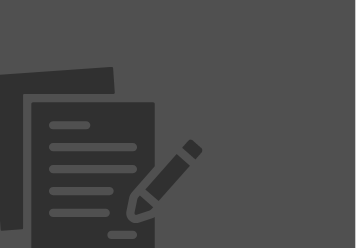On This Page
Routine eye exams are essential for maintaining overall eye health and ensuring optimal vision. At Total Eye Care, we are committed to providing comprehensive routine eye exams that help detect potential issues early so you can enjoy clear and healthy vision for years to come. Whether you wear corrective lenses or not, regular eye exams are crucial for everyone.
What are Routine Eye Exams?
A routine eye exam is a standard procedure conducted by an eye care professional to assess your overall eye health and visual acuity. Unlike medical eye exams focusing on specific eye diseases or conditions, routine eye exams aim to evaluate your vision, check for refractive errors, and determine if you need corrective lenses or an updated prescription. Routine eye exams also include screening for potential eye problems and conditions that can affect your vision and eye health over time.
What to Expect During Your Routine Eye Exam
During a routine eye exam at Total Eye Care, various tests and evaluations will be conducted to ensure a comprehensive eye health assessment. Here is what you can expect:
- Visual Acuity Test: uses an eye chart to measure the sharpness of your vision, both near and far.
- Refraction Test: determines your precise eyeglass or contact lens prescription.
- Eye Muscle Test: checks the muscles around your eyes and how well they work together.
- Pupil Response Test: checks how your pupils respond to light, providing information about overall neurological function.
- Retinal Examination: allows the eye doctor to see the back of your eyes.
- Tonometry: measures the pressure inside your eyes.
- Dilation: allows our doctors to fully assess the health of the eye and also establish your best prescription.
Based on the initial findings, your eye care professional might perform additional tests to further examine potential issues.
How Often Should You Undergo a Routine Eye Exam
The frequency of routine eye exams depends on various factors, including age, overall health, risk factors, and whether you wear corrective lenses. For children up to age 18, the first eye exam should occur at six months, followed by another at three years old, and again before starting school. After that, it is recommended that they have annual eye exams.
Adults should have eye exams every 2-3 years from age 20 to 39 and every 1-2 years once they reach 40. However, if you have risk factors such as diabetes, a family history of eye disease, or wear contact lenses or glasses, you may need to have exams more frequently. Annual eye exams are recommended for seniors 65 and older to monitor for age-related eye diseases and ensure early intervention.
Why are Regular Eye Exams Important?
Eye exams can help detect early signs of eye diseases like glaucoma, macular degeneration, and diabetic retinopathy, which often show no symptoms in their early stages. Early detection can prevent vision loss and allow for timely intervention.
Regular eye exams also help to identify other health problems that can affect the eyes, such as high blood pressure, diabetes, and high cholesterol, which an eye doctor may be able to detect through changes in the eye’s blood vessels or nerve fibers. By undergoing routine eye exams, you can ensure that any potential issues are addressed promptly, helping you maintain optimal vision and overall health.
Schedule Your Appointment
If it’s time for your routine eye exam or you’re experiencing any changes in your vision, don’t wait—schedule an appointment with us today. Our experienced professionals are dedicated to helping you maintain a clear and healthy vision. Contact our office to book your appointment and take the next step toward preserving your eye health.
OUR TEAM
Our approach to patient care starts with our doctors who are devoted to creating a welcoming, and family-oriented relationship with our patients. We employ highly-trained staff to deliver the first-class attention that our patients have come to appreciate and expect.
Meet Our TeamBOOK YOUR
APPOINTMENT
You can also contact us by filling out our online form or giving us a call at (609) 834-2020.
Book Appointment"*" indicates required fields









